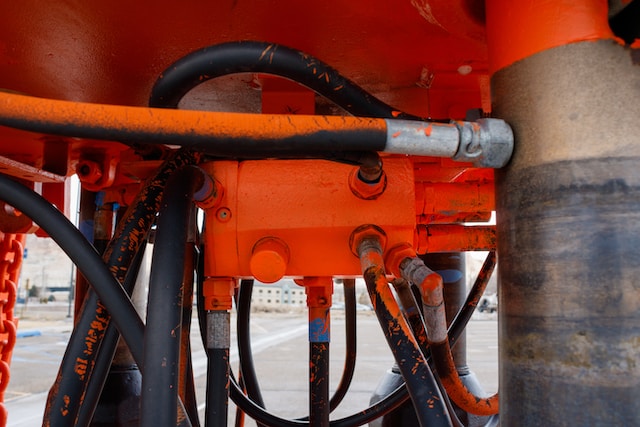Hydraulic hoses are critical components of industrial machines, connecting parts and carrying pressurized fluids. Unfortunately, they can get cut, split or kinked and must be regularly checked. When this happens, machine downtime stalls work and impacts productivity. That’s why having a mobile high-pressure hydraulic hose repair service is invaluable.
Leak Detection
Leaks are a common problem in hydraulic systems, and they can lead to various issues, including loss of power, reduced efficiency, and even environmental damage. Therefore, detecting leaks early on and taking corrective action to prevent them from causing further damage or downtime is important. This may involve replacing or repairing the leaking component with a hydraulic mobile hose repair Charlotte, NC kit. Several different methods can be used to detect leaks in hydraulic systems. One of the most common methods is visual inspection. This involves looking for signs of leaks, such as fluid drips, stains, or puddles. However, visual inspection can be difficult, especially if the leak is small or in a hard-to-reach area. Another method of leak detection is pressure testing. This involves pressurizing the hydraulic system and then monitoring the pressure for drops. If the pressure drops, it indicates a leak in the system. Pressure testing can be more effective than visual inspection but more time-consuming and expensive. If a leak is detected in a hydraulic system, it is important to take corrective action immediately. Hydraulic portable hose repair is a quick and effective way to repair leaks in hydraulic hoses. It is a less expensive option than replacing the hose, and it can be done on-site without removing the hose from the equipment. By detecting leaks early on and taking corrective action, you can prevent them from causing further damage or downtime. This will help to keep your hydraulic systems operating safely and efficiently.
Inspection
Hydraulic hoses are critical components of machines, connecting various parts and carrying pressurized fluids. They’re also vulnerable to multiple problems that can lead to machine failure. These include leaks around hose fittings, kinking or collapsing of old hoses, and damage to hose end connections. Performing an inspection can help you avoid these problems and prolong the life of your hydraulic hoses. It includes a visual examination of the hose and a check of the hose connection points for damage. In addition, it’s important to monitor the fluid level and pressure in your hydraulic hoses. Contact a mobile hydraulic hose repair service if you find a leaking or damaged hydraulic hose. They’ll come to your location and replace the hose on-site to minimize downtime. They will also dispose of the old hoses and ensure the new one is properly installed to prevent future leaks. The average hydraulic hose should last ten years, but it’s crucial to regularly check them for damage and signs of wear and tear.
Repair
Hydraulic hoses must withstand tremendous pressure and stress, especially when the equipment is in motion. They are vulnerable to damage, and when they do burst, it can result in costly production delays, quality issues, and lost revenue. Often, broken hydraulic hoses can be repaired without taking the machinery off-site. A good mobile service will carry replacement hoses on their trucks, which can be installed on-site. This helps reduce downtime and increases productivity. Looking for a mobile hydraulic repair service with high experience and knowledge is important. They should be familiar with the different types of hoses, fittings, and clamps. They will also know how much slack is needed to avoid damage and wear. In addition, they can guide people on preventing hose failure through periodic inspections and preventative maintenance programs. They can advise on the best hoses to use, which are compatible with the machinery and fluids being used, and what type of insertion depth is required.
Replacement
Preventive maintenance is the best way to avoid downtime due to hydraulic hose failure. Maintaining a maintenance log and inspection schedule helps you account for hose replacement time in your operation. Tracking hose history lets you identify the shortest life spans and the types of operating environments that result in the most wear. This information helps you increase inspection frequency, monitor other hoses for signs of impending failure and change a machine’s hoses to a higher-quality product. Avoiding heat damage to hoses is also crucial. Positioning a hose away from exhaust components on mobile equipment and routing it to minimize twisting, which reduces its ability to withstand pressure, can extend its service life by up to 90%.

